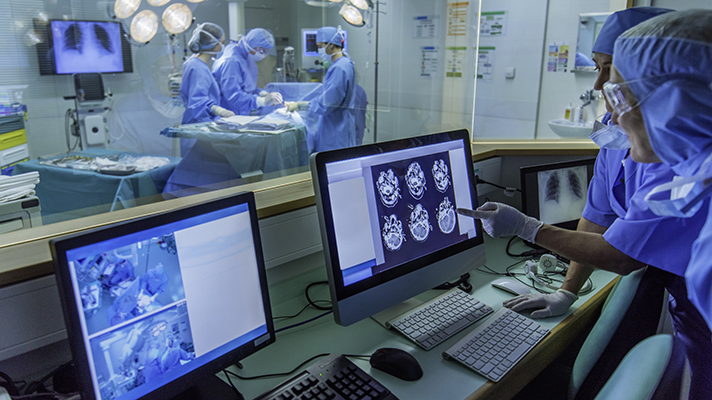Technology is changing how we take care of our health. One of the biggest changes is the use of AI-powered medical devices. These tools use artificial intelligence (AI) to help doctors and patients in amazing ways. Let’s explore what they are, how they work, and why they matter.
What Are AI-Powered Medical Devices?
AI stands for Artificial Intelligence. It means machines that can think, learn, and make smart choices. AI-powered medical devices use this kind of thinking to:
-
Analyze health data
-
Detect diseases
-
Suggest treatments
-
Watch for changes in a patient’s health
They don’t replace doctors, but they make their work easier and faster.
1. AI Imaging Tools
These tools look at medical images like X-rays, CT scans, and MRIs. They find problems quickly and often more accurately than the human eye. For example, an AI tool can:
-
Spot a tumor
-
Find a broken bone
-
Notice signs of a stroke
These AI-powered medical devices help doctors give faster and better care.
2. Smart Wearables with AI
Many people wear smart watches or fitness bands. Some of these are now powered by AI. They don’t just track steps or heart rate. They can:
-
Detect unusual heart rhythms
-
Predict a possible fall
-
Alert a doctor if something is wrong
This is another reason why AI-powered medical devices are becoming popular at home and not just in hospitals.

3. AI for Remote Patient Monitoring
Many patients now stay at home and still get care. AI helps by watching their health from far away. Devices can track:
-
Blood pressure
-
Oxygen levels
-
Blood sugar
Then, AI checks the data. If something is off, it alerts a nurse or doctor right away. This fast action can save lives.
4. AI-Driven Surgical Tools
Some surgeries now use robots guided by AI. These tools are very precise. They help doctors:
-
Make smaller cuts
-
Reduce blood loss
-
Speed up recovery time
Because of their accuracy, these AI-powered medical devices are used more in complex operations.
5. AI Chatbots in Healthcare
AI chatbots help answer health questions. They guide patients to the right care. They are not physical devices, but they are used in apps or on websites. Chatbots can:
-
Check symptoms
-
Book appointments
-
Give reminders to take medicine
They’re fast, easy to use, and available 24/7.
6. AI in Drug Delivery Systems
Some insulin pumps and cancer treatment tools now use AI. These systems adjust the dose based on the patient’s needs. This helps:
-
Avoid mistakes
-
Reduce side effects
-
Improve results
This is another smart way AI-powered medical devices are making healthcare better.
7. AI in Early Disease Detection
AI can spot signs of illness even before symptoms show. For example:
-
AI tools can scan your eye for signs of diabetes
-
AI can look at speech patterns to find early signs of Alzheimer’s
The sooner a disease is found, the better the chances of treatment. That’s why these AI-powered medical devices are so powerful.
Why AI-Powered Devices Matter
These tools do a lot:
-
They save time
-
They lower errors
-
They help doctors focus on what matters most—caring for people
Most of all, they make healthcare smarter and faster. Patients get help sooner and feel more in control.
Final Thoughts
We are in a new age of smart healthcare. AI-powered medical devices are leading the way. From scanning your heart to reminding you to take medicine, they’re changing lives. As technology keeps growing, these devices will only get better. And with them, so will our health.
